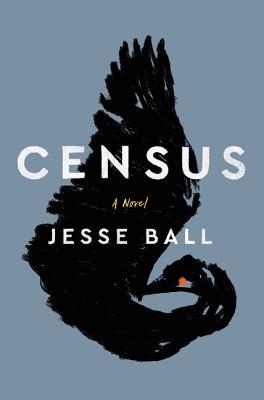Interview: Jesse Ball
 Midwestern Gothic staffer Kate Cammell talked with author Jesse Ball about his book Census, real work, the importance of contradicting oneself, and more.
Midwestern Gothic staffer Kate Cammell talked with author Jesse Ball about his book Census, real work, the importance of contradicting oneself, and more.
**
Kate Cammell: What’s your connection to the Midwest?
Jesse Ball: I live in Chicago and teach at the School of the Art Institute.
KC: Coming from New York to Chicago, how have you found living in a big city that’s also Midwestern? How is it different than other big cities.
JB: Many awful things about the United States that exist but are hidden or kept quiet elsewhere are quite obvious and visible in Chicago. These include problems of race, problems of wealth disparity, problems of corporate influence, problems of gerrymandering and political malfeasance. It is in this way a most American city.
KC: Your latest novel, Census, was just released in early March. It’s received extensive praise, with one of the greatest champions of its excellence being The New York Times. In the Times book review, the author said of your novels: “They don’t distract from the specter of suffering; they insist upon – and help in – its contemplation.” This exposition and meditation on suffering feels like it’s connected to a sense of writer’s duty. When you’re writing your novels are you aware of this sense of duty, or do you find it to be something more innate that is simply attached to the act of storytelling in general and; therefore, something that doesn’t quite announce itself to you as much as exist?
JB: It is a property of real work. The thing that’s difficult is to find the opportunity in life to make one’s real work, whatever it might be. It need not be a thing of books, or music, or film, art, etcetera. It can be anything one does with a full heart.

KC: Census tells the story of a widower father who is terminally ill and seeking care for his son who has down syndrome. The book was inspired by your own brother, Abhram, who had down syndrome. How did growing up with your brother influence the way you wanted to approach writing this book?
JB: This is a matter the book answers better than I do.
KC: You’ve published a wide range of work including children’s books, poetry, and novels. Is there one genre you find particularly rewarding to write?
JB: It is rewarding to write poetry, but people believe they cannot read it.
KC: Do you have a specific process for you writing, like the time of day or place where you work? If so, does the process vary between genres?
JB: Yes, I have a process, but I have gone into it at length elsewhere, so I won’t do so here. The main thing is to have it matter to you a great deal to say a particular thing and then to find a way, any way, to say it.
KC: As a teacher at the School of the Art Institute of Chicago, you have opportunity to influence budding writers. Is there a piece of advice that you give your students that you wish a teacher would have shared with you back when you were a student?
JB: I had some wonderful teachers and I’m not sure I heard all the remarkable things they said to me. I would not necessarily want for them to have said different things. But I do think it is important for artists to feel comfortable trying on many masks with the work they do, and contradicting themselves at every opportunity.
KC: What’s next for you?
JB: Who knows!?
**
Jesse Ball (1978-) Born in New York. His many and varied works of absurdity have been translated into more than a dozen languages.






